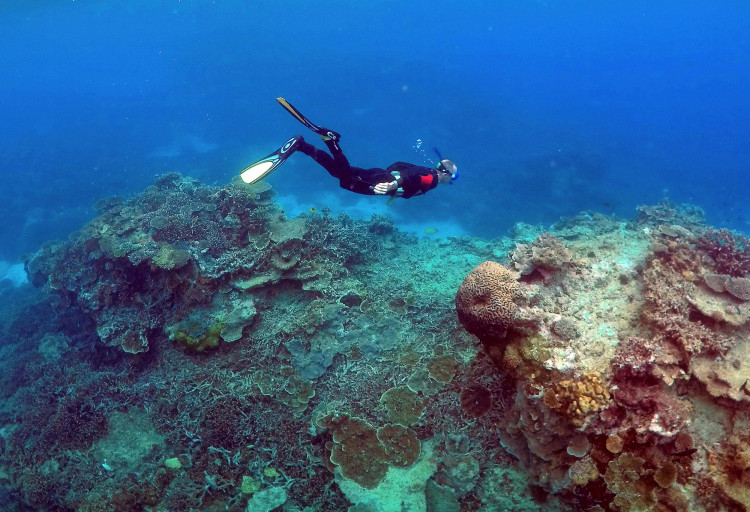Vriko Yu, the founder of archiREEF, won overall champion in Hong Kong's Elevator Pitch Competition (EPiC) 2021, a tech start-up competition organized by Hong Kong Science and Technology Parks Corporation, which attracts hundreds of worldwide entrepreneurs from many disciplines.
EPiC offers a venue for entrepreneurs to pitch their creative company proposals in 60 seconds - the time it takes to ride the elevator to the top of Hong Kong's highest skyscraper, the International Commerce Centre, which stands at 490-meters (1,607-foot).
Entrepreneurs working in four sectors - fintech, health technology, greentech and construction technology, and smart city - were eligible to compete for a prize pool of US$200,000.
Yu's original and intricate concept arose from her research into marine degradation as a summer intern during her undergraduate studies at the Chinese University of Hong Kong. She then co-founded archiREEF with David Baker, her HKU PhD supervisor.
The company uses 3D printing to produce artificial reef structures, the design of which is based on an algorithm created by Yu and her colleagues. Biomimicry - the design and manufacture of materials and structures based on biological entities and processes - is used in the tiles to promote coral development.
Clay is used to print the structures, which must then be dried and fired to become terracotta. ArchiREEF utilizes clay because it is a natural material that does not release dangerous chemicals into the ocean, according to Yu. However, because clay is tough to work with, the start-up has had to hire artists and designers who are familiar with the medium.
She says that the tiles, which were used to create a 40 square metre (430 square foot) reef off the coast of Hong Kong, are four times more effective than traditional restoration methods in keeping coral alive.
The world's attention has been drawn to the innovative solution, which was also recognized by the World Economic Forum as a strategy to help save coral reefs.
Corals, which are invertebrate animals that live in enormous underwater colonies called reefs, have been present in Hong Kong for thousands of years, but pollution and coral mining have decimated the population.
Since 2016, Baker and Yu have been working with the Agriculture, Fisheries, and Conservation Department to rebuild coral at Hoi Ha Wan Marine Park.
Coral mining for construction materials used to take place in Hoi Ha Wan, which is now a protected coastal reserve in Hong Kong's north. According to Baker, "the hard bottom of the seafloor has been mined away," leaving only sand and rubble as a barrier to rehabilitation.
For the corals to grow on, the crew needed to develop a new "bottom." They began creating an artificial coral reef utilizing the university's 3D printing facilities in collaboration with the architecture department.





